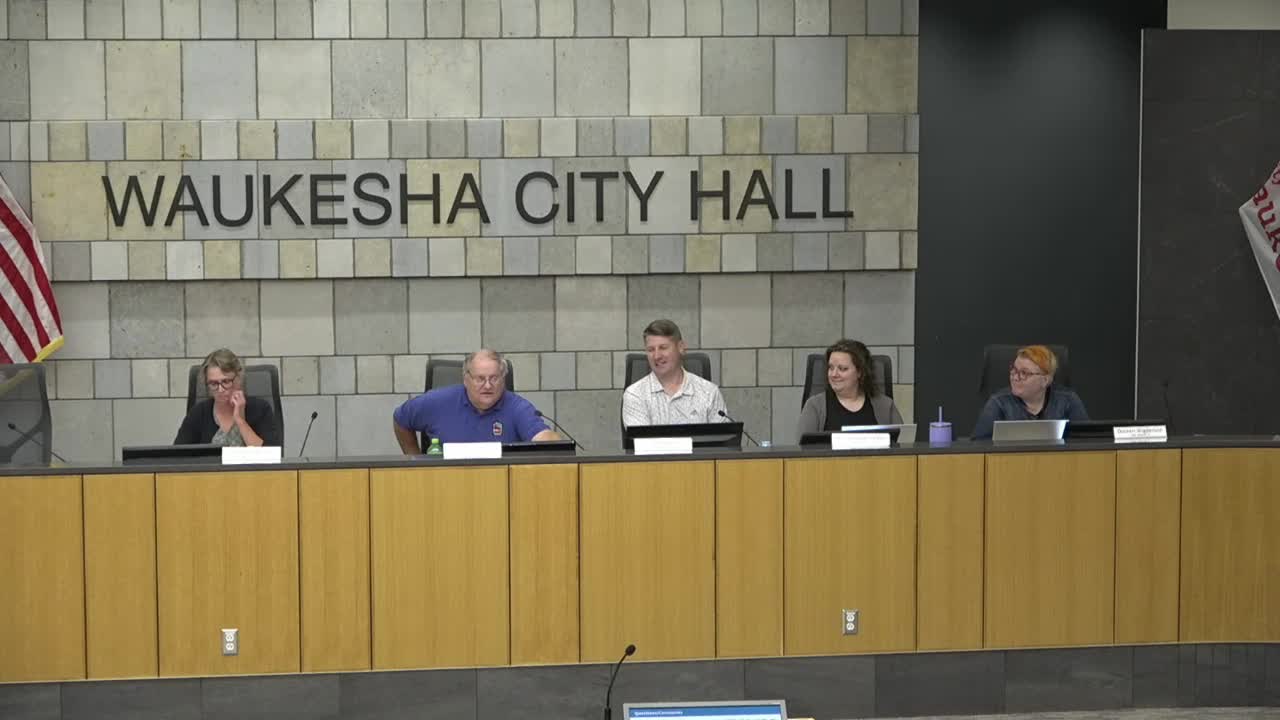Wauwatosa Council Approves New Fees for Garbage and Recycling Collection Services
September 30, 2025 | Waukesha City, Waukesha County, Wisconsin
This article was created by AI summarizing key points discussed. AI makes mistakes, so for full details and context, please refer to the video of the full meeting. Please report any errors so we can fix them. Report an error »

In the heart of Waukesha, a spirited discussion unfolded during the recent Finance Committee meeting, where local leaders grappled with pressing financial concerns that resonate deeply with residents. As the clock ticked toward the evening hour, the committee members focused on the implications of vehicle registration fees and the potential introduction of a wheel tax, a topic that has sparked debate across neighboring communities.
One business owner from Wauwatosa shared insights from their recent experience, noting that while their community processed 85 vehicle registrations, the conversation around a wheel tax loomed large. With Milwaukee residents facing a hefty $145 license fee compared to Waukesha's $85, the disparity raised eyebrows. The business owner expressed a clear stance against the wheel tax, emphasizing that it could lead to confusion among residents regarding property tax implications. They clarified that the proposed increase would not be an additional burden but rather a reallocation of costs, suggesting that the city's budget must remain balanced without further cuts.
Alderman Wiggerson, a newer member of the council, echoed these sentiments, highlighting the lack of shared revenue Waukesha receives compared to other communities in Wisconsin. With a stark contrast in funding—Waukesha County contributing $1.6 billion to the state while receiving only $60 million in return—Wiggerson urged fellow council members to advocate for a fairer distribution of resources. The frustration was palpable as he pointed out that neighboring Racine receives significantly more funding despite its financial struggles.
As the meeting progressed, the committee members recognized the importance of transparency in the budgeting process and the need for community engagement. Wiggerson's call to action resonated, urging residents to voice their concerns to state legislators and demand a more equitable share of funding for Waukesha.
The discussions at this Finance Committee meeting not only illuminated the financial challenges facing the city but also underscored the collective responsibility of local leaders and residents to advocate for their community's needs. As Waukesha navigates its fiscal future, the commitment to transparency and collaboration will be crucial in ensuring that the city receives its fair share of resources.
One business owner from Wauwatosa shared insights from their recent experience, noting that while their community processed 85 vehicle registrations, the conversation around a wheel tax loomed large. With Milwaukee residents facing a hefty $145 license fee compared to Waukesha's $85, the disparity raised eyebrows. The business owner expressed a clear stance against the wheel tax, emphasizing that it could lead to confusion among residents regarding property tax implications. They clarified that the proposed increase would not be an additional burden but rather a reallocation of costs, suggesting that the city's budget must remain balanced without further cuts.
Alderman Wiggerson, a newer member of the council, echoed these sentiments, highlighting the lack of shared revenue Waukesha receives compared to other communities in Wisconsin. With a stark contrast in funding—Waukesha County contributing $1.6 billion to the state while receiving only $60 million in return—Wiggerson urged fellow council members to advocate for a fairer distribution of resources. The frustration was palpable as he pointed out that neighboring Racine receives significantly more funding despite its financial struggles.
As the meeting progressed, the committee members recognized the importance of transparency in the budgeting process and the need for community engagement. Wiggerson's call to action resonated, urging residents to voice their concerns to state legislators and demand a more equitable share of funding for Waukesha.
The discussions at this Finance Committee meeting not only illuminated the financial challenges facing the city but also underscored the collective responsibility of local leaders and residents to advocate for their community's needs. As Waukesha navigates its fiscal future, the commitment to transparency and collaboration will be crucial in ensuring that the city receives its fair share of resources.
View full meeting
This article is based on a recent meeting—watch the full video and explore the complete transcript for deeper insights into the discussion.
View full meeting
